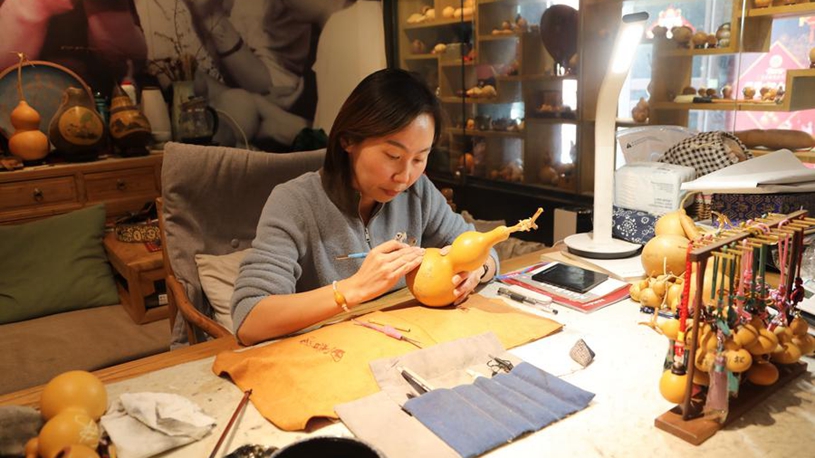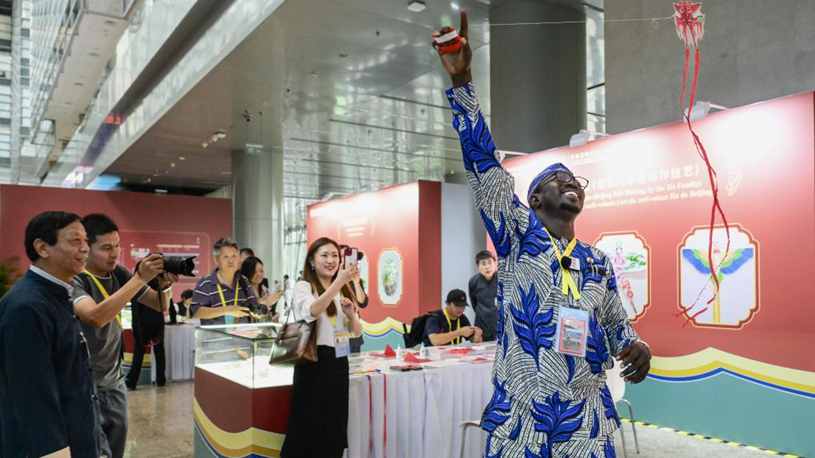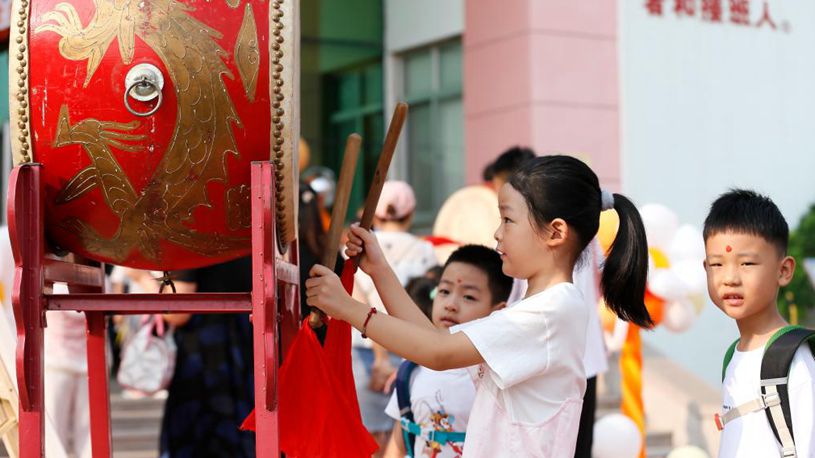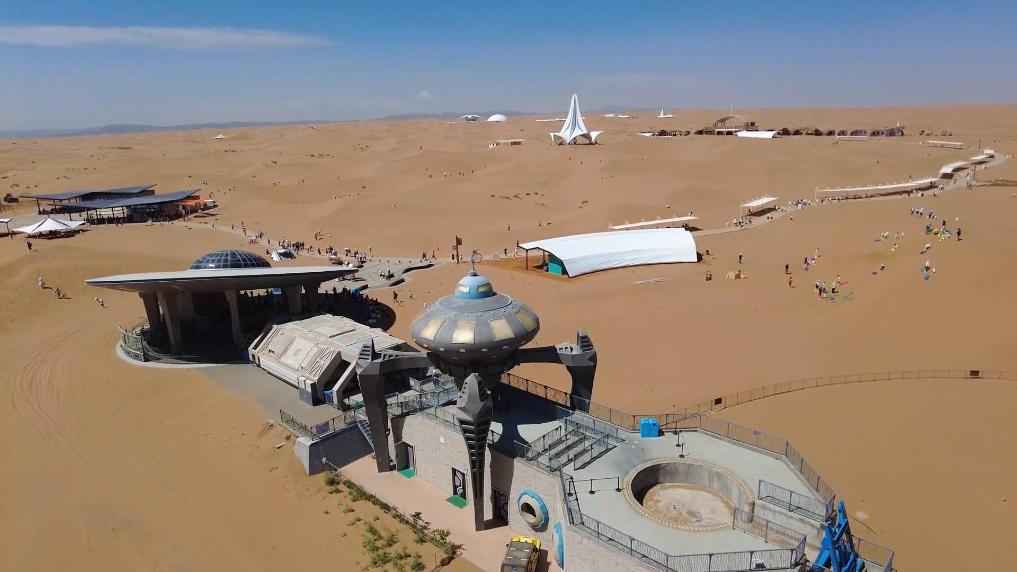NANJING, Sept. 6 (Xinhua) -- In the Pingjiang Road historical and cultural block in Suzhou, east China's Jiangsu Province, tourists are enjoying afternoon tea while savoring the beautiful scenery of the Ding Mansion, a traditional family residence that has been meticulously restored in recent years.
The mansion was built during the late Qing Dynasty (1644-1911). It features exquisite architectural details and quality brick and wood carvings. It is a typical example of a family residence south of the Yangtze River, and has historical value for the study of society and culture of that time.
However, after years of neglect and damp, this old mansion fell into decay, becoming a haunt for termites. In 2011, Suzhou initiated an ambitious restoration program, introducing companies that run businesses such as restaurants, exhibitions and art galleries in historic buildings, while also taking care of daily maintenance.
Today, the mansion is being utilized by a restaurant, Ping Jiang Song, which serves Suzhou cuisine and hosts cultural events amid the garden's serene landscape.
The revitalization of Ding Mansion is an example of the city's restoration program. It consists of a hybrid approach, with one part of the building rebuilt with bricks and tiles recovered from the old mansion, and the other part newly constructed and decorated according to the classical style.
"We preserve the house's traditional charm in our renovation efforts, like choosing tiles made with intangible cultural heritage techniques to pave the floor," said Ding Li, the restaurant's manager.
"The revitalization of historic architecture is a triple win. Our group gets a platform with great cultural value to run a catering business, the government is relieved of high maintenance costs, while consumers have a good place to enjoy Suzhou's beautiful garden and cuisine," Ding said.
The preservation of historic buildings is a prerequisite for their reuse. The restaurant has implemented rigorous daily cleaning to combat mold and pests, and the kitchen was moved to the alley outside to avoid fire hazards.
While such traditional residential houses are reviving their cultural value through modern business use, the Humble Administrator's Garden, a masterpiece of the classical Chinese garden, is promoting the culture of gardens through some innovative tourism practices.
During the daytime, about 20,000 tourists flock to the garden every day. When night falls, visitors can take a night tour, according to Xue Zhijian, curator of the Suzhou Garden Museum and director of the Administration Office of the Humble Administrator's Garden.
The garden's operations team has adopted sound and light effects during night tours to immerse the visitors in the garden's beauty. Wireless control technology and movable power supplies are also used to help minimize damage to plants and landscapes.
The tours also include traditional cultural elements like the zither, the game of go, calligraphy and Suzhou embroidery, in order to display the important aesthetic elements of the Chinese literati who once lived there.
Notably, the highlight of the tours is a mesmerizing live performance of Kunqu -- a local opera form with a history of over 600 years, which has been listed by the United Nations Educational, Scientific and Cultural Organization (UNESCO) as an intangible cultural heritage.
"Based on the gardens, we hope to represent the aesthetics created by the ancient Chinese literati who once lived here and turned life into art, and inspire the public to integrate the beauty of art into their modern lives," said Xue.
"Only by integrating historical ancient buildings into modern life can they have vitality. The Ding Mansion has provided a beneficial exploration for reconstructing the vitality of ancient buildings," said Wang Jun, dean of Suzhou Academy of Social Sciences, adding that in this digital era, modern high-tech and new media technologies such as sound and lights have made it possible to present ancient buildings and cultural heritage from a new perspective.
This possibility has also been turned into reality thanks to the proactive innovation and exploratory spirit of the garden management department, according to Wang.
"Suzhou's Ding Mansion and the Humble Administrator's Garden have only taken a small step, and in the future, more forms, more content and more scenarios need to be explored," Wang added. ■












